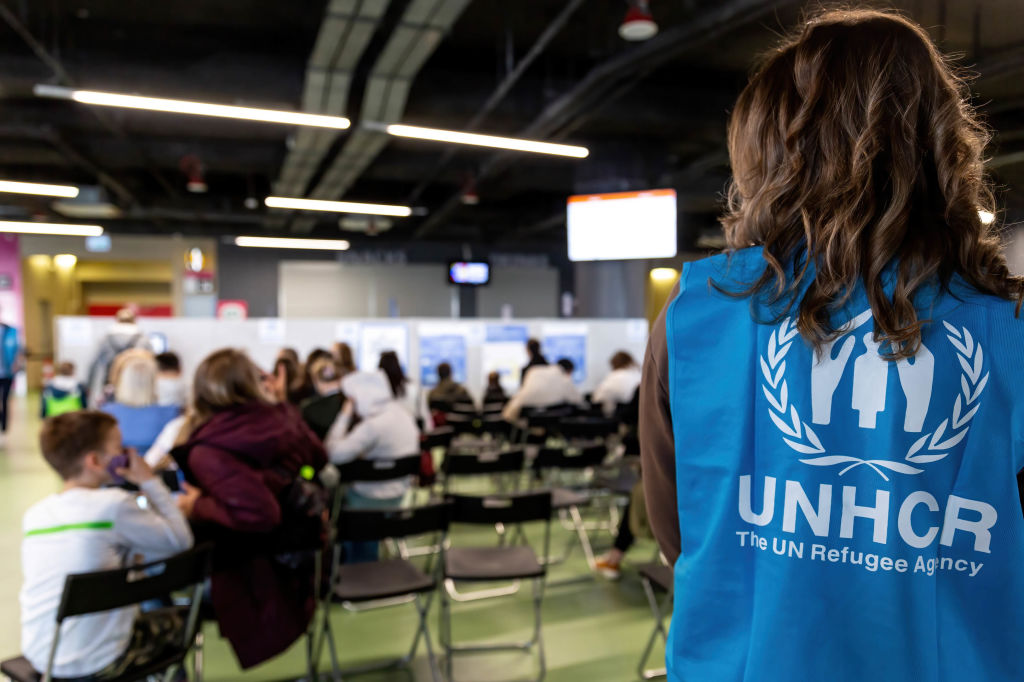
Every day more than two children are killed, and four are injured, in the conflict in Ukraine. After over 100 days of war, almost two-thirds of Ukrainian children have been displaced.
Conflict exposes the vulnerability of children, and greatly increases it. As well as physical harm, there is the trauma: the effect of displacement, of nights spent listening to bombardment, of being separated from family, of seeing friends and relations killed. Trauma stops the dreaming. Not just because the nightmares come, but the dreaming that pulls up life forward. The thinking about what we might create. What might improve. Who we might love. Trauma destroys what the child was born to be.
We are more aware of the reality and impact of war than ever before. But for all our awareness, the risk to children is getting greater. There are now more conflicts raging than at any point since the Second World War. One in every six children worldwide—426 million—lives in a conflict zone.
Read more: The Messages That Hold Refugee Families Together
The conflict in Ukraine has taken the number of displaced people worldwide past 100 million—higher than ever before recorded. More than one in every 100 people worldwide is displaced, as a refugee, asylum seeker, or within their own country—beyond the population of the U.K., or France, or Germany. Of these 100 million, perhaps 40 million are children forced from their homes and their communities. For them, the future looks bleak.
We have to recognize that our systems for preventing conflict and mass human displacement, and defending human rights, are not working. Three-quarters of refugees live in protracted situations, where return to their country of origin is impossible because the problems they fled persist. Aid relief is now stretched so thin that the U.N.’s World Food Programme has said that in Yemen, “we have no choice but to take food from the hungry to feed the starving and…in a few weeks we risk not even being able to feed the starving.” In Afghanistan, NGOs fear that hunger may kill more people than the last 20 years of war. The U.S. National Intelligence Council has warned that refugee rights are among “the norms at the highest risk of weakening globally in the next decade,” meaning that, unless we act, there will be even less agreement about how to protect refugees.
We cannot wait for current crises to pass, or for leadership to emerge at an international level, before we ask what needs to change. Aid relief is supposed to be a temporary solution, provided without discrimination. Refugees and displaced people are supposed to be able to return home safely after conflicts as a result of diplomacy and peace agreements. Human rights standards are supposed to be applied consistently. Instead, we see examples of refugees apparently being discriminated against on the basis of their skin color, religion or country of origin. The world’s poorest countries host millions of refugees for decades without an end in sight, while the richest devise ever more elaborate ways of closing their borders and “off-shoring” asylum seekers.
Read more: Children Must Be at the Top of the U.N. Refugee Agenda
We need to acknowledge what it would take to bring down the numbers of refugees globally. We need to understand the deep level of human suffering of the people in these situations. And we need to recognize that we are still living in old ways, with old behaviors. We have not adjusted our institutions to meet the new, still-shaping world.
Because of the way the U.N. was set up, it is tipped towards the interests and voice of powerful nations at the expense of those people suffering the most from conflict and persecution whose rights and lives are not treated equally. For decades, the main focus has been the work of international organizations. There’s been not enough attention on listening to local groups and volunteers, and strengthening their efforts.
I don’t pretend to have the answers, but I am with all those who are searching for a new way. A lot of the strength I see at this time comes from the individual people in countries affected by conflict, like Ukraine—and from local organizations, volunteers, and refugees themselves—who are not waiting to be helped but are supporting each other. That is where I put my faith and hope, until we have the courage to rebuild our international institutions, and to live up to the promise of equal rights and protection for all.
More Must-Reads from TIME
- Cybersecurity Experts Are Sounding the Alarm on DOGE
- Meet the 2025 Women of the Year
- The Harsh Truth About Disability Inclusion
- Why Do More Young Adults Have Cancer?
- Colman Domingo Leads With Radical Love
- How to Get Better at Doing Things Alone
- Michelle Zauner Stares Down the Darkness
Contact us at letters@time.com